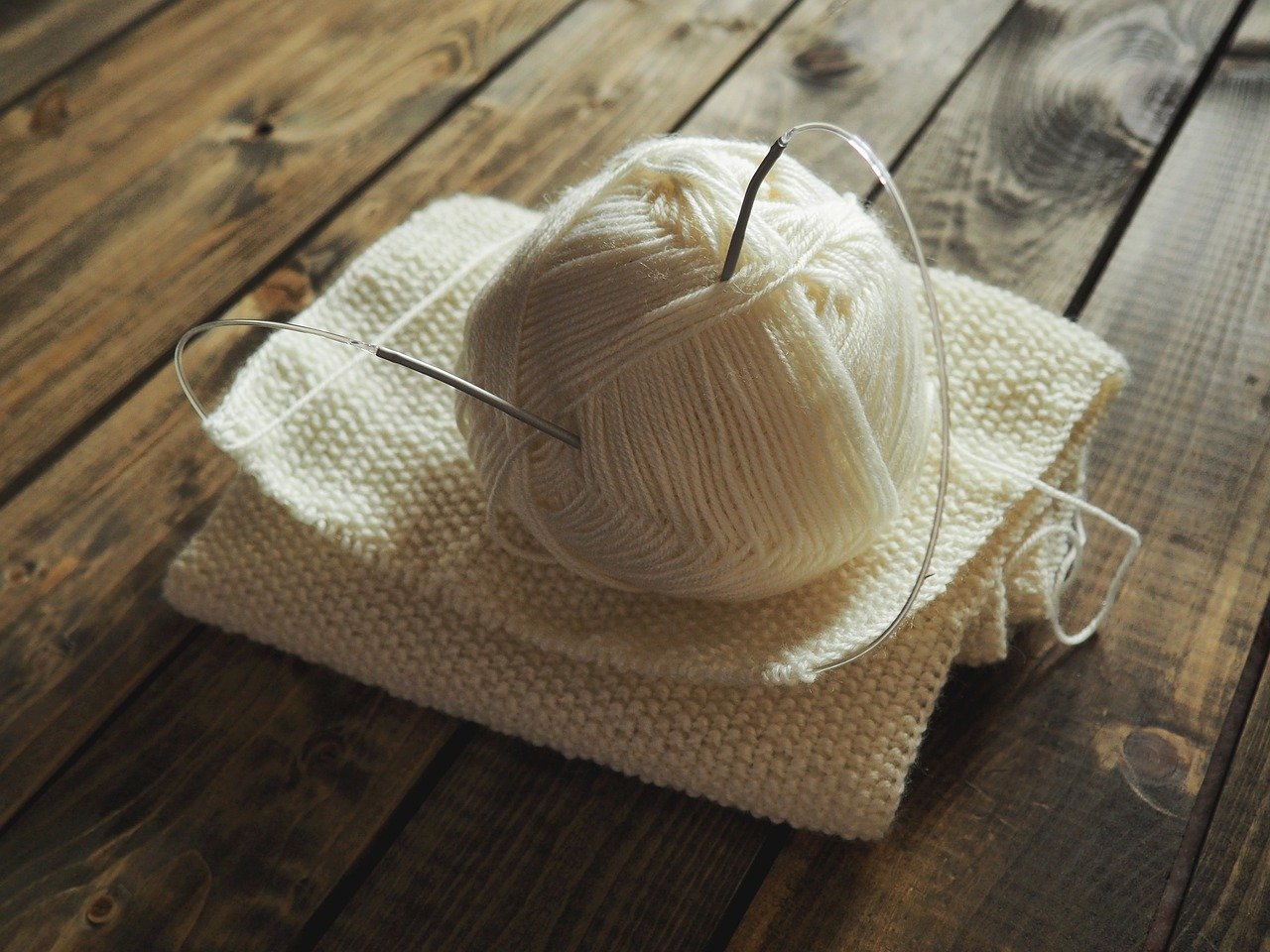In today’s fast-paced world, finding time to relax and unwind has become increasingly important. But have you ever stopped to consider the role that hobbies play in promoting relaxation and leisure? Whether it’s painting, gardening, playing a sport, or even cooking, engaging in a hobby can provide a much-needed escape from our busy lives. Not only do hobbies help us to disconnect from the stressors of daily life, but they also allow us to focus on something enjoyable and fulfilling. So, let’s explore the various ways in which hobbies can contribute to a more relaxed and leisurely lifestyle.

Hobbies and their impact on relaxation
Types of hobbies that promote relaxation
When it comes to finding hobbies that promote relaxation, there is a wide array of options to choose from. Some popular examples include reading, painting, gardening, knitting, playing a musical instrument, cooking, and fishing. These hobbies provide a sense of calm and tranquility by allowing you to disconnect from the stresses of everyday life and indulge in activities that bring you joy and peace.
Benefits of hobbies for relaxation
Engaging in hobbies not only promotes relaxation but also offers a multitude of benefits for your overall well-being. Firstly, hobbies provide a much-needed escape from the pressures and demands of work and daily responsibilities. They allow you to shift your focus and immerse yourself in an activity that you find enjoyable, ultimately providing a mental break and reducing stress.
Furthermore, hobbies can boost your mood and increase happiness. When you engage in an activity you love, your brain releases endorphins, which are natural chemicals that promote feelings of pleasure and contentment. This can have a profound positive impact on your mental and emotional well-being. Additionally, engaging in hobbies can enhance your creativity, problem-solving skills, and sense of accomplishment, further contributing to a sense of relaxation and fulfillment.
Challenges in finding relaxing hobbies
While hobbies can be incredibly beneficial for relaxation, it can sometimes be challenging to find activities that truly promote a sense of calm and tranquility. It’s essential to find hobbies that align with your interests and preferences, as engaging in activities you don’t enjoy can actually lead to increased stress and frustration.
Additionally, finding the time and resources to pursue hobbies can be an obstacle for many individuals. Busy schedules, family commitments, and financial considerations can all pose challenges when it comes to carving out time for relaxation through hobbies. However, with some creativity and determination, it is possible to overcome these hurdles and find enjoyable activities that promote relaxation and leisure.
Hobbies as a means of leisure
How hobbies contribute to leisure time
Leisure time is essential for overall well-being and finding a sense of balance in life. Hobbies play a crucial role in contributing to leisure time by providing enjoyable and fulfilling activities that you can engage in during your free time. Instead of mindlessly scrolling through social media or watching television, hobbies offer a productive and fulfilling way to spend your leisure hours.
By participating in hobbies, you actively choose to invest your time and energy in something that brings you joy and satisfaction. This active engagement in meaningful activities during your leisure time can lead to a greater sense of fulfillment and personal growth.
Differentiating between active and passive hobbies
When considering hobbies for leisure, it’s important to differentiate between active and passive hobbies. Active hobbies require your physical or mental involvement, such as playing sports, painting, or learning a new language. These types of hobbies provide an outlet for self-expression, skill development, and personal growth.
On the other hand, passive hobbies involve more relaxed and passive participation, such as watching movies, listening to music, or taking a leisurely walk. While these hobbies can still provide relaxation and enjoyment, they may lack the same level of active engagement and personal development as active hobbies.
Engagement and enjoyment in leisure activities
The key to finding relaxation through hobbies lies in the level of engagement and enjoyment you experience while participating in them. Engaging in hobbies that truly captivate your interest and passion allows you to enter a state of flow, where you become fully immersed in the activity and lose track of time. This state of flow brings a sense of deep relaxation and fulfillment, as you are completely present and focused on the task at hand.
Ultimately, the enjoyment and satisfaction derived from leisure activities are highly individualized. It’s important to explore different hobbies and find the ones that resonate with you personally, bringing you both relaxation and joy.

Psychological aspects of hobbies and relaxation
Hobbies as a stress-relief mechanism
One of the significant psychological benefits of engaging in hobbies is their ability to serve as a stress-relief mechanism. Hobbies offer a healthy outlet for managing and reducing stress levels. When you immerse yourself in an activity you enjoy, your focus shifts away from the sources of stress in your life, allowing your mind and body to relax.
Engaging in hobbies can also promote a sense of mindfulness, as it encourages you to be fully present and engaged in the present moment. By redirecting your attention to the activity at hand, you can temporarily let go of worries and anxieties, providing much-needed mental and emotional relief.
Psychological benefits of engaging in hobbies
Engaging in hobbies can have a profound impact on your psychological well-being. Hobbies provide a sense of purpose and fulfillment, offering a break from the monotony of daily routines. They allow you to tap into your creativity, explore new interests, and develop new skills, all of which contribute to a sense of personal growth and self-esteem.
Moreover, hobbies can boost your mood and overall happiness by triggering the release of endorphins, the brain’s natural mood-boosting chemicals. When you engage in activities that bring you joy and satisfaction, you experience a heightened sense of positivity and overall well-being.
The role of hobbies in achieving work-life balance
Achieving a healthy work-life balance is crucial for your overall well-being, and hobbies can play a significant role in this pursuit. Engaging in hobbies allows you to disconnect from the demands of work and dedicate time to yourself and your personal interests. By allocating time for relaxation and personal enjoyment, you create a sense of balance in your life, which can lead to increased productivity, better mental health, and enhanced overall satisfaction.
Hobbies serve as a reminder that there is more to life than work and can act as a buffer against burnout and excessive stress. By prioritizing leisure activities, you create a healthier and more fulfilling lifestyle that promotes relaxation and enjoyment.
Physical benefits of hobbies for relaxation
Hobbies as a form of physical exercise
Many hobbies can double as a form of physical exercise, offering numerous benefits for relaxation and overall well-being. Engaging in physical activities through hobbies promotes the release of endorphins, which can reduce stress and improve mood. Hobbies such as hiking, cycling, swimming, dancing, or playing sports allow you to combine relaxation and physical fitness, resulting in a healthier body and mind.
Physical exercise has been linked to improved sleep quality, increased energy levels, and enhanced cognitive function. By incorporating physical hobbies into your routine, you not only promote relaxation but also reap the many positive effects of regular exercise.
Improving overall well-being through hobbies
Hobbies also contribute to overall well-being by improving various aspects of your health. Regular engagement in hobbies can boost cardiovascular health, strengthen muscles and bones, and improve flexibility and coordination. These physical benefits can lead to increased longevity, reduced risk of chronic diseases, and a better quality of life.
Furthermore, physical hobbies provide an opportunity for outdoor activities, allowing you to connect with nature and take in the beauty of the world around you. This connection with nature has been shown to reduce stress, increase feelings of vitality, and promote a sense of well-being.
Hobbies for physical relaxation
In addition to the physical exercise aspect, certain hobbies provide specific physical relaxation benefits. Activities such as yoga, tai chi, and meditation focus on deep breathing, stretching, and mindfulness, allowing you to release tension and find inner calm. These practices have been proven to reduce stress, improve sleep, alleviate chronic pain, and enhance overall physical relaxation.
Engaging in hobbies that promote physical relaxation not only benefits your body but also contributes to a sense of tranquility and peace of mind.

Social aspects of hobbies and relaxation
Hobbies as a means of socializing
Hobbies can be a fantastic way to meet new people and socialize with like-minded individuals. Joining hobby groups, clubs, or classes allows you to connect with people who share similar interests, fostering a sense of belonging and community. Whether it’s joining a book club, a photography group, or a cooking class, engaging in hobbies alongside others can enhance the overall enjoyment and relaxation you experience.
By socializing through hobbies, you expand your social network, create meaningful connections, and gain emotional support. Sharing your passion with others who understand and appreciate your interests adds a valuable social dimension to your relaxation.
Bonding and connecting through shared interests
Engaging in hobbies with friends, family, or even colleagues can strengthen existing relationships and cultivate new ones. Participating in shared activities fosters a sense of bonding and creates opportunities for positive interactions and shared experiences.
Enjoying leisure activities together can lead to increased communication, mutual understanding, and deeper connections. These social connections and bonds contribute to a sense of relaxation and well-being, as you feel a sense of belonging and support within your social circle.
Joining hobby communities and clubs
In addition to socializing with individuals in your immediate circle, joining hobby communities and clubs opens up a wider network of individuals who share your interests. These communities provide platforms for learning, inspiration, and collaboration, allowing you to enhance your skills and deepen your knowledge in your chosen hobby.
Being a part of a hobby community provides a sense of belonging and a shared sense of purpose, promoting relaxation and enjoyment. It allows you to surround yourself with people who understand and appreciate your passion, further fueling your motivation and enthusiasm.
Creativity and relaxation through hobbies
Exploring and expressing creativity through hobbies
Hobbies offer a platform for exploring and expressing your creativity. Engaging in creative activities such as painting, writing, photography, or crafting allows you to tap into your imagination and unleash your artistic side. This creative outlet provides a sense of freedom and self-expression, promoting relaxation and well-being.
Creativity has been linked to increased problem-solving abilities, improved cognitive function, and enhanced self-confidence. By engaging in hobbies that foster creativity, you not only find relaxation but also nurture important skills that can benefit various areas of your life.
Enhancing problem-solving skills through hobbies
Some hobbies, particularly those that involve puzzles, strategy games, or model-building, can enhance your problem-solving skills. Engaging in these activities challenges your mind, sharpens your analytical thinking, and improves your ability to find innovative solutions.
The process of matching colors in a painting, finding the right musical notes, or creating intricate designs in a craft project all require problem-solving skills. By regularly engaging in hobbies that involve these elements, you exercise your brain and develop a more adept and flexible mindset when it comes to problem-solving.
The role of hobbies in promoting a sense of accomplishment
Engaging in hobbies can provide a sense of accomplishment and pride, further contributing to relaxation and overall well-being. When you invest time and effort into a hobby, you create tangible results that demonstrate your progress and growth. Whether it’s finishing a painting, completing a knitting project, or mastering a new musical piece, these achievements bring a sense of fulfillment and boost your self-esteem.
Furthermore, hobbies often allow for continuous learning and improvement. As you set goals, make progress, and witness your skills develop, you experience a sense of personal satisfaction and motivation. This ongoing sense of accomplishment contributes to relaxation as you feel a sense of purpose and progress.
The impact of hobbies on mental health
Hobbies as a distraction from negative thoughts
Engaging in hobbies can serve as a distraction from negative thoughts and rumination. When you immerse yourself in an enjoyable activity, your mind naturally shifts its focus, allowing you to escape from the cycle of negative thinking and worry that may contribute to anxiety and depression. By momentarily redirecting your attention, hobbies provide a mental and emotional respite.
Additionally, hobbies can help you develop healthier coping mechanisms in managing stress and negative emotions. Instead of resorting to unhealthy behaviors or negative thought patterns, hobbies act as a healthier and more productive outlet for processing and managing difficult emotions.
Hobbies as a therapeutic outlet
Hobbies can also serve as a therapeutic outlet for emotional expression and self-reflection. Engaging in activities such as writing, painting, or journaling allows you to process and release emotions, promoting emotional well-being and self-awareness.
Many individuals find solace and catharsis in creative hobbies, allowing them to explore their inner thoughts and feelings in a non-judgmental and expressive manner. This form of self-expression can be incredibly healing and contribute to a sense of peace and relaxation.
Hobbies for managing anxiety and depression
Hobbies have been shown to be effective in managing symptoms of anxiety and depression. The act of engaging in enjoyable activities releases endorphins and boosts serotonin levels, both of which are neurotransmitters associated with improved mood and overall mental well-being.
Regular engagement in hobbies can also provide a sense of structure and routine, which is particularly beneficial for individuals with depression or anxiety. Having a hobby to look forward to and a purposeful activity to engage in can help alleviate symptoms and promote a more positive outlook.
Hobbies and productivity in leisure time
Finding a balance between productive and leisurely hobbies
Incorporating both productive and leisurely hobbies into your routine can help strike a balance between relaxation and personal growth. Productive hobbies involve activities that contribute to tangible outcomes or skill development, such as learning a new language, writing a novel, or building furniture. These hobbies provide a sense of accomplishment and personal development.
On the other hand, leisurely hobbies involve activities purely for enjoyment and relaxation, without a specific end goal in mind. These hobbies could include reading for pleasure, taking long walks, or simply listening to music. Engaging in leisurely hobbies allows you to recharge and unwind without the pressure of productivity.
By finding a balance between these two types of hobbies, you can maximize the benefits of relaxation while also nurturing personal growth and development.
Using hobbies as a means of personal development
Hobbies can act as a powerful tool for personal development, contributing to your overall growth and self-improvement. Engaging in activities that challenge you and push you out of your comfort zone can foster resilience, adaptability, and a willingness to embrace new experiences.
Learning a new skill through a hobby can enhance your confidence, expand your knowledge, and increase your sense of accomplishment. The process of setting goals, tracking progress, and working towards improvement provides a sense of structure and motivation, ultimately leading to personal development and growth.
The value of relaxation in enhancing productivity
Contrary to popular belief, relaxation through hobbies can actually enhance productivity in other areas of your life. Taking regular breaks to engage in enjoyable and relaxing activities allows your mind and body to recharge, improving focus, creativity, and overall cognitive function.
By including regular relaxation time through hobbies in your routine, you create space for rest and rejuvenation, ensuring that you are able to approach tasks and responsibilities with a refreshed and energized mindset. The value of relaxation lies in its ability to enhance productivity by promoting mental clarity, reducing stress, and preventing burnout.
Overcoming barriers to relaxation through hobbies
Challenges in prioritizing leisure time
In today’s fast-paced world, finding the time and energy to prioritize leisure time and engage in hobbies can be a challenge. Many individuals find themselves caught in a cycle of constant busyness and productivity, often neglecting their need for relaxation and personal enjoyment.
Overcoming this challenge requires a conscious commitment to making leisure time a priority. It’s important to recognize the value and benefits of relaxation through hobbies and to actively allocate time in your schedule for these activities. By setting boundaries, managing your time effectively, and practicing self-care, you can overcome the challenge of prioritizing leisure time and create a healthier and more fulfilling lifestyle.
Finding time for hobbies amidst a busy schedule
Another barrier to relaxation through hobbies is the perceived lack of time in a busy schedule. However, it’s essential to remember that relaxation and personal enjoyment are essential for overall well-being and should not be sacrificed. By analyzing your daily routine and identifying areas where time is being wasted or mismanaged, you can often discover pockets of time that can be utilized for hobbies.
Consider incorporating small and manageable chunks of hobby time into your daily or weekly schedule. This could involve waking up earlier, utilizing lunch breaks or commutes for reading or listening to audiobooks, or setting aside specific evenings or weekends for engaging in hobbies.
Financial considerations and affordable hobbies
Financial considerations can also be a hindrance when it comes to pursuing hobbies for relaxation. However, it’s important to remember that hobbies don’t have to be expensive or require significant financial investment. There are plenty of affordable or even free hobbies available, such as hiking, gardening, drawing, or practicing yoga at home.
Additionally, exploring alternative resources or seeking out hobby communities can provide cost-effective ways to engage in activities. Local libraries, community centers, and online platforms often offer resources, classes, or groups dedicated to specific hobbies, providing opportunities for engagement without breaking the bank.
Hobbies and the importance of self-care
Hobbies as a form of self-care
Self-care involves taking deliberate actions to prioritize and nurture your physical, mental, and emotional well-being. Engaging in hobbies is a powerful form of self-care, as it allows you to engage in activities that bring you joy, relaxation, and fulfillment.
By dedicating time and energy to your hobbies, you actively prioritize your well-being and create a space for self-care within your daily life. Hobbies provide an opportunity for self-reflection, personal growth, and emotional rejuvenation, all of which are vital components of a comprehensive self-care routine.
Creating a self-care routine involving hobbies
Incorporating hobbies into a structured self-care routine can enhance their impact on relaxation and overall well-being. By intentionally setting aside time for leisure activities, you ensure that self-care is not neglected amidst the demands of everyday life.
Consider creating a weekly or monthly self-care schedule that includes specific time slots dedicated to engaging in hobbies. This routine can be personalized to fit your preferences and needs, allowing you to prioritize the activities that bring you the most relaxation and enjoyment.
Maintaining mental and emotional well-being through hobbies
Engaging in hobbies consistently and as part of a self-care routine can significantly contribute to maintaining your mental and emotional well-being. By regularly dedicating time to relaxation and personal enjoyment, you create a buffer against stress, burnout, and the negative impact of daily pressures.
Hobbies provide an outlet for self-expression, creative exploration, and emotional release. They act as a source of joy and fulfillment, promoting positive emotions and overall mental well-being. By taking care of your mental and emotional health through hobbies, you cultivate the necessary resilience and balance to navigate the ups and downs of life.
In conclusion, hobbies play a vital role in promoting relaxation and leisure. Engaging in activities that bring you joy, fulfillment, and personal growth can have a profound impact on your overall well-being. Whether it’s through physical exercise, creative expression, social connection, or simply taking time for yourself, hobbies provide a powerful means of achieving relaxation and enhancing your quality of life. By prioritizing leisure time, engaging in activities that captivate your interest, and making self-care a priority, you can experience the myriad benefits of hobbies on your physical, psychological, and emotional well-being. So go ahead, indulge in your favorite hobbies and discover the profound relaxation and happiness they can bring to your life.
